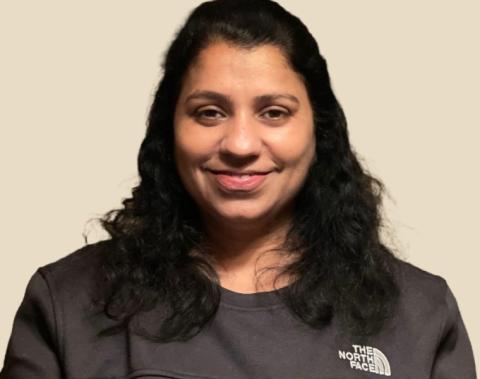When the pandemic struck in 2020, Anju Kotwani was moved by the toll it was taking on the mental health of people everywhere. She was so moved, in fact, that she pivoted from her career in corporate human resources and returned to school to study social work. Today, she is a second-year Master of Social Work student at the Jack, Joseph and Morton Mandel School of Applied Social Sciences. Already, she’s earning recognition in her field as a researcher—earlier this month, she was selected to present at the Society for Social Work and Research annual conference. And, thanks to her experience in Collaborative Practice I last year, she’s also focused on the root causes of health and mental health needs of individuals living in marginalized communities. Read more about Kotwani.
Which community organization were you assigned to for CPI and what was your project?
I worked in collaboration with medicine and nursing students. Our team worked on a social media campaign to increase access to maternity-related services and health information for women living in the Central Neighborhood while connecting them to prenatal services available through community health workers. We worked for Better Health Pathways HUB (BHP HUB), an agency that connects at-risk populations to pathways for prenatal care, social services, medical referrals, etc. We also helped BHP HUB to successfully organize a community baby shower in the Central Neighborhood.
What was your biggest lesson(s) learned from the CPI experience?
The biggest lesson that I learned while working in an interdisciplinary team was that our diverse skills, if combined, can help underserved individuals living in marginalized communities get the best quality care in a dignified manner and raise their awareness about health and well-being.
How did CPI shape your post-graduate/career plans?
The CPI experience helped me to focus more on the root cause of health and mental health needs of individuals living in marginalized communities. These individuals need more than integrated health care—they need housing, steady employment, access to affordable insurance and financial resources. I am looking forward to working in community mental healthcare settings to improve psychosocial interventions that address the social needs such as housing and employment, in addition to addressing immediate mental health needs.
Read more about Kotwani and her research in this Spartan Showcase, which appeared in The Daily on January 10, 2023.


